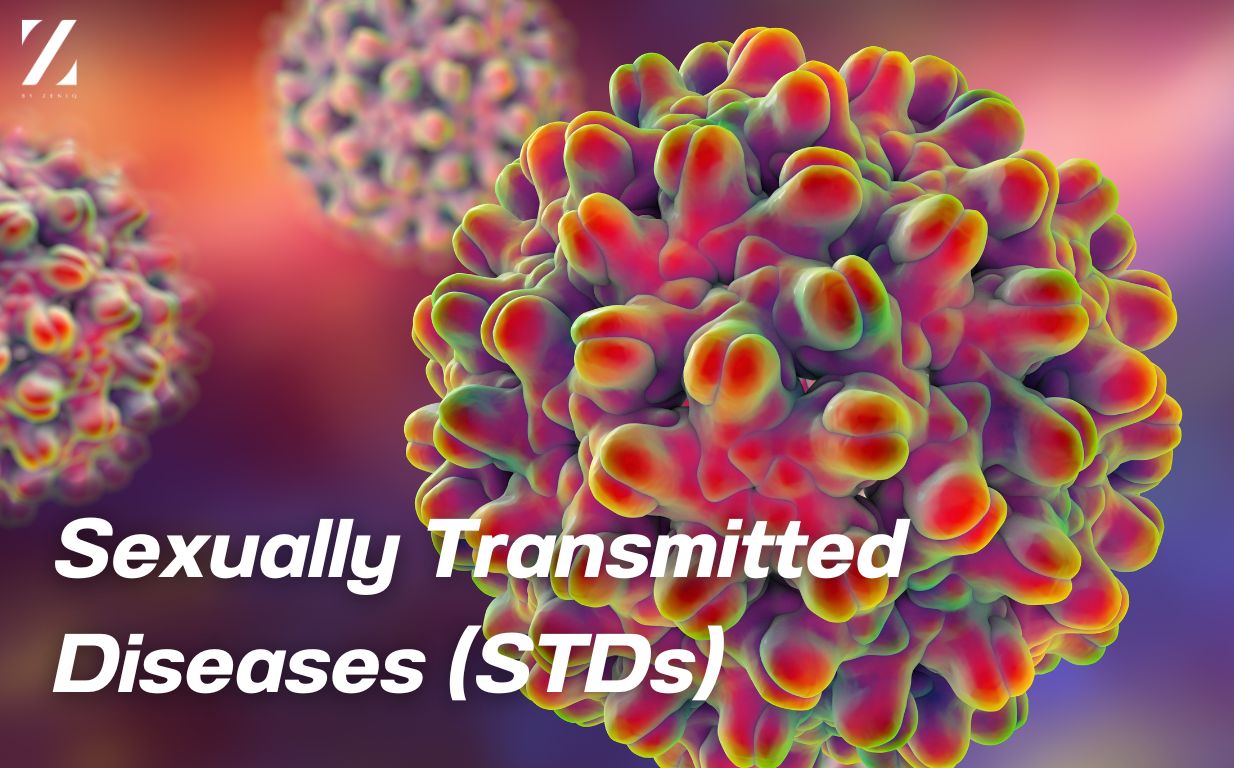Sexually transmitted diseases (STDs) are infections that spread through sexual contact. They are caused by various pathogens and can have severe health consequences if left untreated. Prevention and proper treatment of STDS are crucial in maintaining sexual health. Increased awareness can help reduce the risk of infection. So, let’s learn the meaning, about prevention, and treatment of STDs.
STDs include Chlamydia, Gonorrhea, Syphilis, HIV/AIDS, Herpes, and HPV. Each disease has different symptoms like genital sores, pain during urination, blisters, or unusual vaginal or anal discharge. If left untreated, these diseases can lead to severe complications such as infertility or an increased risk of contracting HIV.
Types of STDs and Common Symptoms
Transmitted through unprotected sexual intercourse, and common STDs include:
- Chlamydia & Gonorrhea: Symptoms include painful urination, abnormal discharge, or lower abdominal pain.
- Syphilis: Begins with a painless sore on the genital area, which may heal on its own, but without treatment, it can worsen.
- HIV/AIDS: Early HIV symptoms may resemble flu, but not every patients have symptoms.
- Herpes: Causes blisters around the genital area, lips, or anus.
- HPV: Can lead to genital warts or increase the risk of cervical cancer.
STDs Treatment Principles
Treatment for a STD depends on the pathogen causing the infection. Infections such as Chlamydia or Gonorrhea can be treated with antibiotics. Conditions, including Herpes or HIV, require antiviral medications to control the symptoms and reduce their transmission.
Early treatment is essential to prevent complications or the transmission to others. Treatment often includes medical consultations and advice on how to prevent future infections.
Preventing STDs Infections
Preventing STDs infections is crucial to avoid contracting these diseases:
- Using condoms: This is an effective way to prevent almost all types of STDs.
- Vaccination: Vaccines for HPV and Hepatitis B are effective preventive measures.
- STDs Testing: Regular STDs testing allows for early detection and immediate treatment.
The Importance of Follow-up After Treatment
After receiving treatment for an STDs, follow-up is important to ensure the infection is cured and to prevent symptom relapse. It also helps identify any side effects from medication or complications, such as drug-resistant infections. Follow-up care ensures patients receive additional advice on preventing future infections.
Conclusion
Treating STDs is crucial to prevent severe complications. Appropriate medication and treatment based on guidelines are essential for effective treatment. Additionally, regular prevention and health checks help reduce the risk of future STDs infections.
At Z by Zeniq, we offer comprehensive STDs services, including screening, treatment, prevention, and vaccination.

